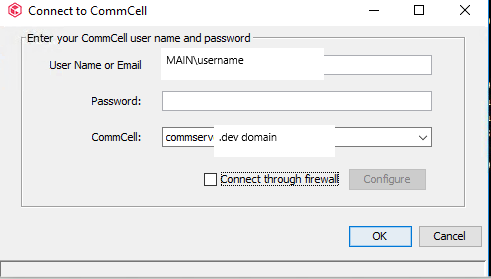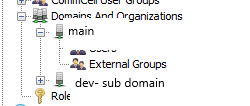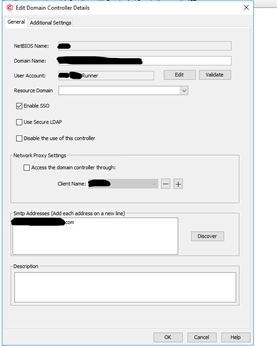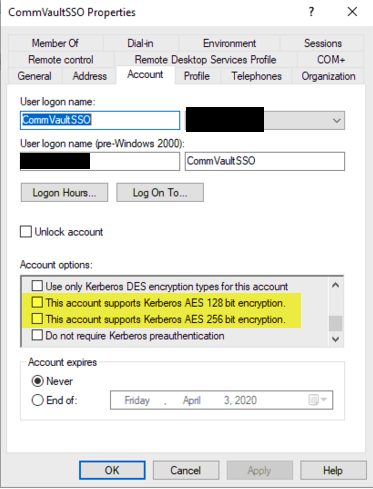We recently set up a CommCell in our dev environment and SSO appears to keep failing attempting to sign in to the comcell console. when I try to launch the CommCell. It attempts to SSO then fails and prompts us to enter our password. Entering our passwords is not a long term option as we need to authenticate our accounts using certificates on a smart card(how we rdp to the commserv). We have tested entering a password and it does successfully authenticate to the main domain that we set up in the security section of the CommCell.

We have our main domain with our authenticating groups and the dev domain where our CommCell is joined.

We also have SSO set up identically to our other CommCell’s in our production domains per https://documentation.commvault.com/commvault/v11/article?p=3793.htm .

I also tried validating the user account in the domain settings and it validates successfully without issue, so I am not entirely sure if it is a networking/domain issue. I have also examined the EvMgrs logs and it appears SSO just stops after it tries to validate the admin account? I thought that this was odd ….
7820 2e94 04/21 16:26:05 ### authenticateThread() - Challenge client[10.32.48.37] on socket[4816]
7820 2498 04/21 16:26:09 ### CVSimpleDB::SQLINFO() - INFO: [Operation invalid at this time] [RecNum:1, Spid:105]
7820 2498 04/21 16:26:09 ### EvSecurityMgr::validateUser() - Attempt to validate credentials of User [admin], id[1] failed with error [0]However, when I looked at the EvMgrs logs on a commcell that has sso functioning properly, it does appear to get past the attempt to log in as the admin user.
13896 4374 04/21 16:23:19 ### CVSimpleDB::SQLINFO() - INFO: [Operation invalid at this time] [RecNum:1, Spid:243]
13896 4374 04/21 16:23:19 ### EvSecurityMgr::validateUser() - Attempt to validate credentials of User [admin], id[1] failed with error [0]
13896 436c 04/21 16:23:21 ### onMsgEncryptedLogin() - Socket [0x0000000000000620]: Login Successful [7-MAIN\USERNAME] has unrestricted visibility Setting locale to US English by default. CVLocaleId=[0] Updating Browser Session [4] with locale [0] Successful login for [GUI Browser:GUI Browser@COMMSERVE] on port [8401]
13896 435c 04/21 16:23:22 ### AlertLiveFeeds::fetchFeedItems() - No live Feed returned by stored procedure[Br_NTGetLiveFeedAlert] for Last Feed Id[0] user Id [7] pageStartId = [1] lastLiveFeedIdSend = 0
13896 435c 04/21 16:23:22 ### LiveFeeds::sendLiveFeedsToGui() - Sending Console alert to GUI for request with sequence number[4437124456850], xml:[<App_LiveFeedListResp/>], retCode [2]
13896 4358 04/21 16:23:24 ### LibConfigAppClientProp::getBasicClientProperties() - Overall Elapse Time: 0.680178I was wondering if anyone else has experienced this issue with sso?











